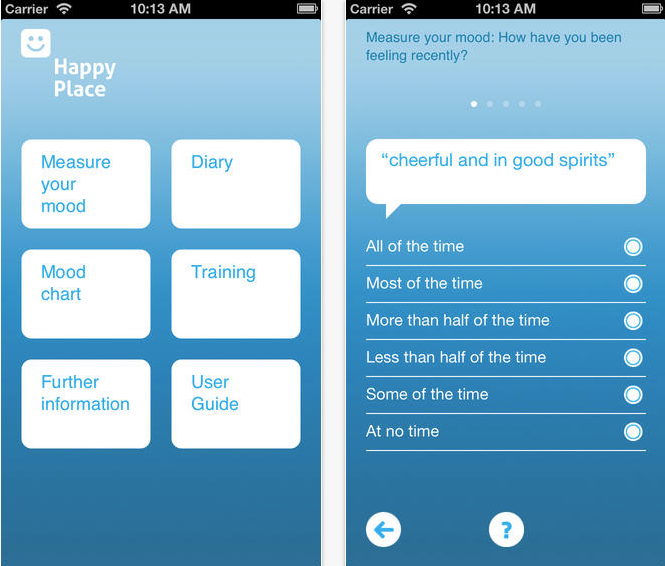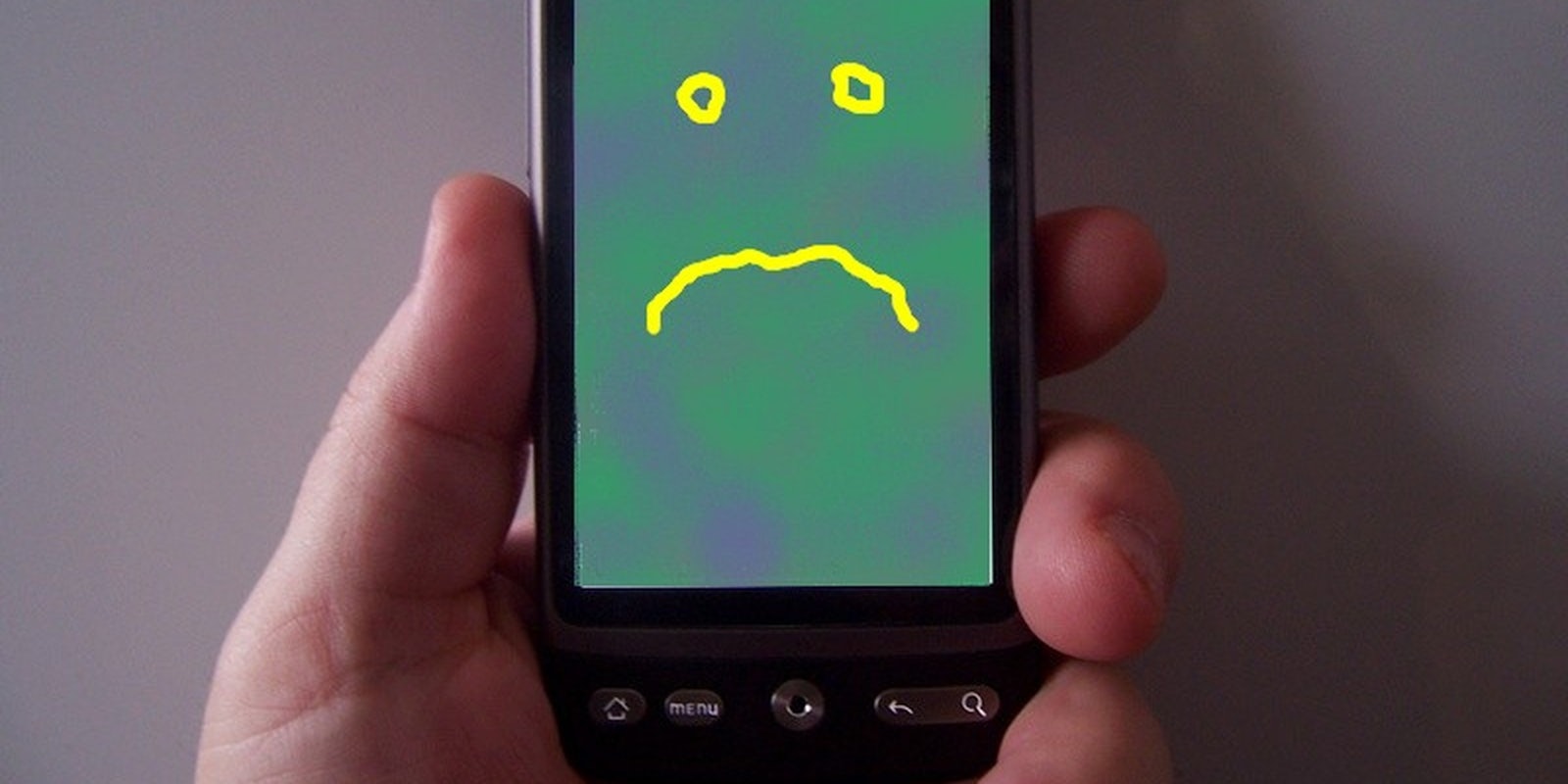An anti-depression app called HappyPlace could have just been a pictorial of a fantasy wedding to Benedict Cumberbatch. It could have been kittens playing. That would be about as useful as the app actually is for people with depression.
This app, which costs $1.99 in the App Store, was covered by Betabeat and the Guardian and purports to be a mood regulator for depression. But as someone who lives with depression, I found the app creates more confusion for me than anything.
The training is based on research suggesting that depression is caused by a biased mindset, “particularly around the processing of ambiguous faces,” the Guardian reported.
The app contains training, “quick” and “intensive,” which consists of spending either five or 12 minutes, respectively, clicking whether a face is “happy” or “sad.” The training provides feedback on how perception of emotion colors worldview and leads to depression. The point is to see emotion in faces more positively. “If you are unhappy, our research shows that this may help improve your mood,” the app says. HappyPlace claims you can measure your mood, track feelings over time, and train the way you see emotions in faces.

I got many of the training questions wrong due to the nightmarish appearance of the man in the photos. Sometimes a small smirk was considered “sad,” and a neutral face was deemed “happy.” It didn’t make sense.
In its explanation, the app says, “Try to identify patterns between events in your life and periods of low mood.”
The other elements are a diary, which I could do on my iPhone’s notepad anyway. There’s a questionnaire to answer every day, with prompts like “How have you been feeling recently?” and then a set of answer pairs: “calm and relaxed,” “active and vigorous,” “cheerful and in good spirits.” You can mark if you’re refreshed first thing in the morning and if your days are filled with interesting things. These create a mood chart, so you can watch the fluctuation of your moods.
The problem is that people with depression aren’t simply unhappy. At least in my case, I understand that my mood is irrational, and being told so by an app won’t change anything. What helps is regular sleep, yoga, meds, therapy, and a whole host of other lifestyle changes. If the app leads to that, cool. But alone? I’m not sure what it’s supposed to do.
Photo via RonBennets/Flickr


